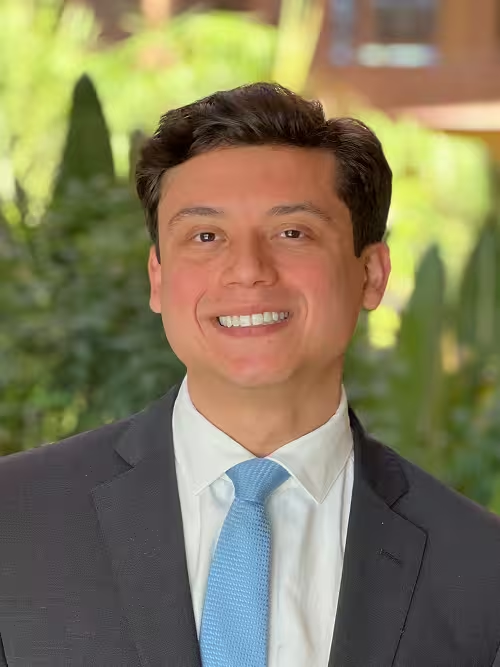
Why Do Surprise, AZ Residents Need an Estate Planning Attorney?
An estate plan is essential for Surprise residents who want to ensure that their wishes are carried out and their loved ones are cared for after they pass away. Without such a plan, the state of Arizona will decide how your assets are distributed, potentially leaving your family with unexpected financial burdens and legal complications.
Here are a few reasons why a well-crafted estate plan is vital:
Protect Your Loved Ones
An estate plan directs that your assets be distributed according to your preferences, minimizing disputes and providing financial security for your family.
Minimize Taxes
An estate plan can help you minimize estate taxes, ensuring that more of your hard-earned assets go to your beneficiaries.
Appoint Guardians for Minors
If you have young children, an estate plan allows you to designate guardians who will care for them if something happens to you.
Avoid Probate
A properly structured estate plan can help you avoid the often lengthy and costly probate process, allowing your assets to be distributed more efficiently.
Provide Peace of Mind
Knowing that your affairs are in order can offer much-needed peace of mind and allow you to focus on what matters most in life.
What Are the Elements of an Estate Plan?
An estate plan typically includes several legal documents that work together to outline your wishes and expectations for your estate and assets.
Key components include:
Powers of Attorney
A power of attorney grants someone you trust the authority to make financial and legal decisions on your behalf if you become incapacitated. This could include managing your bank accounts, paying bills, or making medical decisions.
Living Will
A living will spells out your wishes regarding medical treatment if you’re unable to make your own decisions. It specifies your preferences for life-sustaining treatment, such as artificial respiration or feeding tubes, in the event of a terminal illness, irreversible coma, or similar condition.
Last Will and Testament
This crucial document dictates how your assets will be disposed of after your death. It also names an executor who will be responsible for carrying out your designs, paying debts, and distributing your assets to your beneficiaries. A last will and testament allows you to specify how your property, money, and other assets will be divided among your loved ones.
Living Trust
A living trust holds your assets during your lifetime and distributes them according to your instructions after your death. This arrangement can help your estate avoid probate while providing greater control over your assets and ensuring that they’re distributed as you desire. It can also protect your assets from creditors and safeguard your privacy.
What Are Guardianships and Conservatorships?
Guardianships and conservatorships are legal arrangements that provide for the care and management of individuals who are unable to care for themselves. They may be necessary for minors or adults who have become incapacitated due to illness, injury, or mental disability.
Guardianship
A guardian is appointed to make personal decisions for the individual, such as those regarding their health, education, and living arrangements. They may be called upon to make medical decisions, choose schools and other educational facilities, or determine where the ward will live.
Conservatorship
A conservator is appointed specifically to manage an individual's finances. Responsibilities include managing the individual’s assets, paying their bills, and making investment decisions.
Estate plans often include these arrangements to provide for loved ones who may need assistance. You can specify who should be appointed as guardian and conservator in your estate plan.
How to Choose a Personal Representative for Your Will
Selecting an executor for your will is a momentous decision. You should make it a point to pick someone trustworthy and responsible who has the time and ability to manage your estate. Consider factors like their experience with financial matters, their willingness to handle legal documents, and their relationship with your beneficiaries.
It's also important to choose someone who’s familiar with your wishes and can see that they’re carried out faithfully. You might appoint a family member, friend, or professional associate as your executor.
How Much Does an Estate Plan Cost?
The cost of an estate plan can vary depending on several factors, including the size and complexity of your estate, the number of assets you own, and the specific legal documents you need.
At HagEstad Law Group, we understand that estate planning can be a significant investment, but we believe it's an essential one. We offer flexible payment options to make our services accessible to everyone, and we’re transparent about our fees from the first meeting. We’ll provide you with a clear breakdown of all potential costs before we begin any work.
What Happens If You Don't Have an Estate Plan
If you die without an estate plan, the state of Arizona will decide how your assets are distributed through a process called intestacy. This can lead to a slew of undesirable consequences, such as:
- State-Determined Asset Distribution: Arizona law will dictate how your assets are to be divided, which may not align with your wishes.
- Potential for Family Disputes: Without clear instructions, your relatives may disagree on how assets should be distributed, leading to legal battles and strained relationships.
- Delays in Distributing Assets: The intestacy process can be lengthy and complex, delaying the distribution of your assets to your loved ones.
- Higher Taxes: Without proper planning, your estate may be subject to higher taxes, reducing the amount of assets available for your beneficiaries.
All of these reasons point to the crucial need to consult a qualified estate planning lawyer in Surprise while you’re still of sound health and mind.
What Is Probate?
Probate is the legal process of administering a deceased person's estate. It involves identifying assets, paying debts, and distributing the remaining assets to beneficiaries according to the terms of the decedent’s will or the laws of intestacy (if there’s no will).
Probate can be a lengthy and expensive process, often involving court proceedings and legal fees. However, with proper estate planning, it may be possible to avoid probate altogether. A living trust, for example, can help distribute assets outside of probate, saving your loved ones time and money.



.png)

.png)
.png)
.png)
.svg)
_7XLG.webp)



.svg)

.png)

_4XLG.webp)










%20(1).png)
.svg)